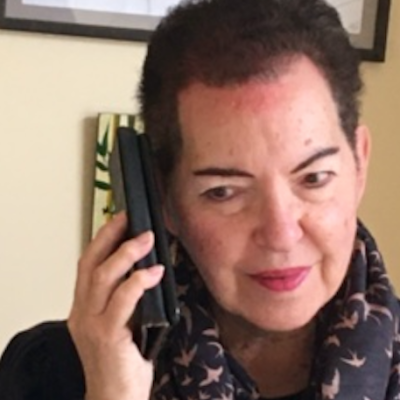Managing your fear of public speaking
How many opportunities have you lost due to a fear of public speaking? Have you missed the chance to become better known in your profession, to promote yourself and your business? What about contributing to and having influence at meetings or having the courage to stand up and speak on what you believe in? Then there are interviews and the ability to answer with substance and fluency.

“According to most studies, people's number one fear is public speaking”. So says Jerry Seinfeld, actor, writer and comedian who has amassed his $950 million wealth from his ability to address and entertain audiences.
Some nerves are helpful; without them complacency can set in leading to a laid back attitude and inadequate preparation. A sense of pressure can encourage you to prepare well, by turning it into adrenalin to fire you towards thorough preparation and confident delivery.
There is much you can do to counter public speaking anxiety. Here are a few of my tips.
To start with, there’s your preparation, what to do before the day.
1. Be very well prepared, without being over-prepared.
2. Find out all you can about your audience so that you write with relevance.
3. Learn all that you can about presentation and speaking techniques, such as structuring. The knowledge that you are using best practice will help you feel more confident.
4. Start with your objectives: what do you want your listeners to say or do as a result of what you say? Now you can start to prepare.
5. Give your speech or presentation a clear structure: an introduction, body of content and a conclusion that links with your objectives.
6. Use ‘hooks’ (ways to get your listeners drawn in) such as anecdotes, evidence and rhetorical questions, to provide variety and authenticity.
7. Write clear notes that are easy to glance at, not every word, but rather headings with bullet points.

Then practise your delivery and give consideration to what you do on the day.
8. Practise aloud, in front of a mirror to check your body language is open and confident.
9. Time your speech to ensure you don’t over-run or under-utilise the time you have.
10. On the day, greet everyone and chat to relax yourself, your voice and others, and to lubricate your voice in advance of your speech.
11. During your speech, look at people, not over their heads into space, as good presentations involve creating relationships.
12. Be unapologetic: if you miss something out say with confidence: “I’d like to add a point to something I said earlier”, not “Sorry there’s something I meant to say”.
13. Be unapologetic and unembarrassed: anticipate questions and how you’ll answer them. If there’s a question you can’t answer, say confidently: “That’s an interesting question. I don’t have the figures to hand. However, I will check and come back to you after this meeting.”
In the words of Dale Carnegie: “There are always three speeches, for every one you actually gave. The one you practiced, the one you gave, and the one you wish you gave.”
Be sure that you give the one you wish to give! Seek out all opportunities you can to speak and present as avoiding them is likely to increase your anxiety. For example, check out Toastmasters - find a local group (groups are still running online during social distancing).
Clients who have at first said they dread speaking in public, have told me how they’ve learned to love it. The more you practise, the more relaxed you’ll become. You may even start to enjoy it!

Find a coach dealing with Career coaching
All coaches are verified professionals






